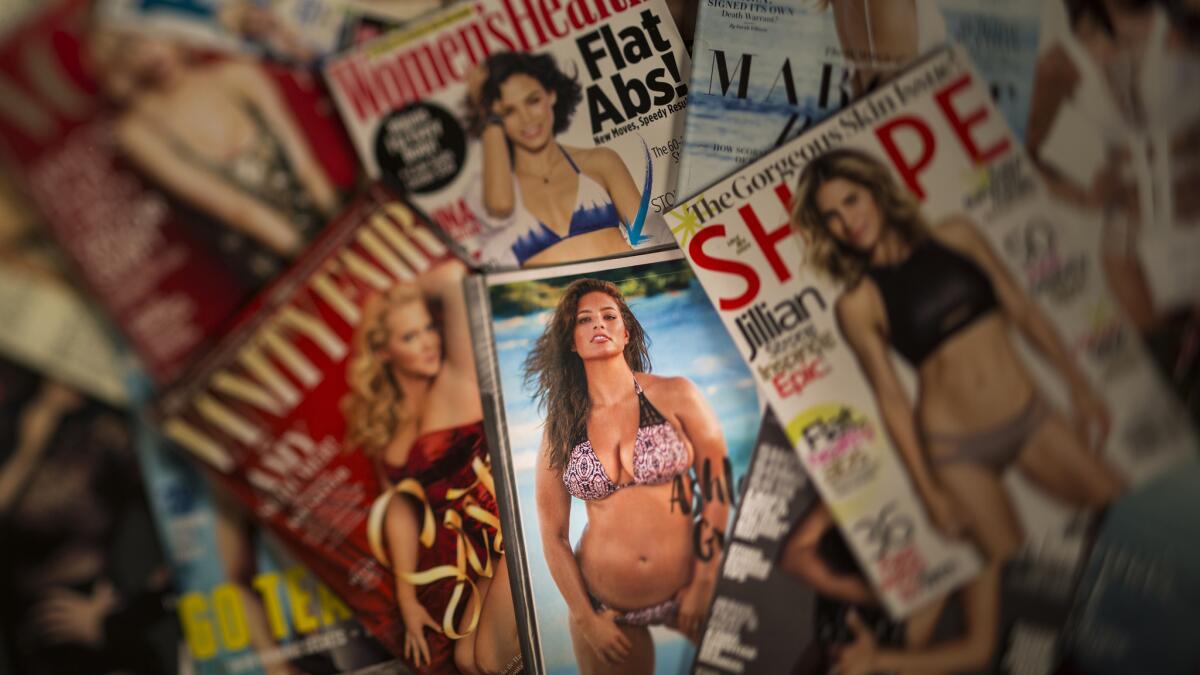Why this magazine is ditching the ‘body shaming’ language

- Share via
“Are you bikini ready?”
That all-too familiar headline — as well as variations on it — could be headed for extinction.
Women’s Health magazine announced that it’s banning this kind of “outdated” terminology from its cover.
Media outlets should not be complicit in “body shaming” and promoting a certain physical ideal, said Women’s Health Editor in Chief Amy Keller Laird. It was reader feedback that prompted her to drop such phrases as “bikini body” and the “drop two sizes” type of language from its cover.
“We wanted to make sure we were staying modern and check ourselves,” she said. “It’s not only about, ‘I have to be a certain size.’ We really want to promote health and wellness, not anxiety and issues.”
It also comes as a new study finds that our cultural perceptions may be shifting.
A meta-analysis of 30 years of body image surveys, slated to be released at the American Psychological Assn. annual meeting in August, suggests that an obsession with being thin is actually declining, perhaps as a result of greater body diversity in the media, according to study author Bryan Karazsia, associate professor of psychology the College of Wooster in Ohio.
One need only look to this year’s Sports Illustrated swimsuit issue cover girl, size 16 Ashley Graham, to see how much has changed since the days of Cheryl Tiegs, when only super-thin models were expected to be seen in a bikini.
To that end, Laird said Women’s Health is trying to include more “athletic” bodies as well as features on swimsuits that run to higher sizes. The magazine also has launched a podcast to discuss body image and other social issues that affect women’s health.
It’s just good business in an era when body image and acceptance has become such a hot-button issue, with figures such as comedian Amy Schumer and London Mayor Sadiq Khan weighing in.
Last month, Khan moved to ban ads that might cause body confidence problems in young people from the London public transportation system. His ban was sparked by a series of ads on the subway featuring a young, bikini-clad woman hawking a weight-loss pill and asking, “Are You Beach Body Ready?”
“As a father of two teenage girls, I am extremely concerned about this kind of advertising, which can demean people, particularly women, and make them ashamed of their bodies. It is high time it came to an end,” Khan said.
Laird said the bikini is not dead by any means.
Her readers, she said, continue to seek #fitspiration and advice on how to get lean and toned, so aspirational models and skin-baring suits are not going away in her magazine.
“The bikini itself is not the problem,” she said, just the notion that you have to look a certain way to qualify for one.
KEEP READING:
Why midnight snacking is the worst
Relieve your tension headache after a dumb day at work
Why this magazine is ditching the ‘body shaming’ language










